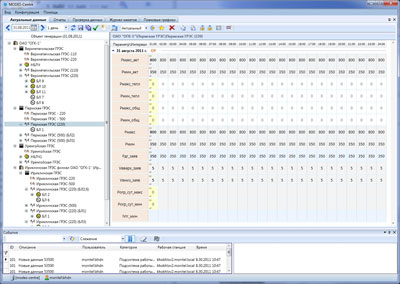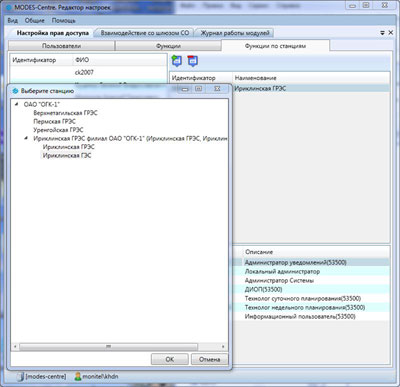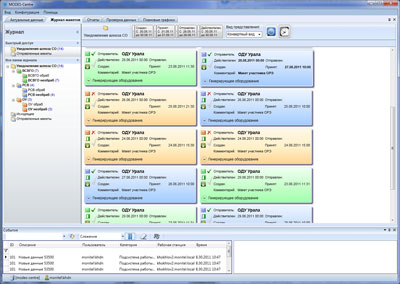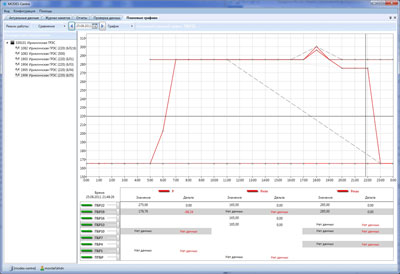OVERVIEW AND BASIC CAPABILITIES

MODES-Centre is a software suite designed to automate business processes of a distributed generation company, such as consolidation and analysis of weekly, daily and operational schedule data at the level of a control center. This data is usually exchanged between generating company divisions and SO UPS data gateways. The scope of MODES-Centre application includes management generating companies and their branches' control centers, power plants.
MODES-Centre ADVANTAGES
- Developed communication capabilities and support for secure and reliable data exchange between the central office, branches, and power plants of a generation company under existing and future regulations
- Fast and easy adaptation to changing rules, exchange formats, and regulations
- A unified reference about parameters of controlled objects, which is updated via SO UPS data gateway
- Support for different time zones in different branches
- Data preparation for formation and sending templates to multiple control centers from one generating company office
- The solution is based on modern Microsoft technologies for the industry, which reduces cost of installation and ownership
- High reliability of data storing and processing
- Integration with external software systems
- Development and implementation of specialized components and subsystems
SECURITY
MODES-Centre has a flexible and reliable system of authorization that enables differentiation of users' responsibility for each stage of scheduling and sending of scheduled data to a specific power plant.
The logs register all significant events, which let you track user activity for any period of operation of the system.
BASIC SUBSYSTEMS in MODES-Centre
- Communication adapter provides interaction with SO UPS data gateways, including sending of prepared models, receive of planning schedules, and notifications
- Transport system manages data exchange between internal subsystems and client of MODES-Centre, which might be system clients and external software systems
- Data storing management subsystem provides individual rules for storage of different types of data
- Events subsystem controls generation and system events storage
- Authorization subsystem controls users' access rights
- Logging subsystem handles MODES-Centre logs
- Business rules management subsystem provides support for the execution of business processes to harmonize data for the preparation of weekly, daily and operational planning templates within the approved routes
ADDITIONAL SUBSYSTEMS in MODES-Centre
- Data testing and calculations subsystem provides creation and management of user data validation rules for the templates and performs calculations based on data from MODES-Centre.
- Reporting subsystem forms report documents based on MODES-Centre data in popular data formats.
- Data export subsystem exports data in *.xml, *.xlsx, *.csv, and other formats.
- CK-2007 integration subsystem exports data to SCADA/EMS CK-2007.
- Electronic LogBook "Hedgehog-2" integration subsystem creates logbook entries on the bases of events registered in MODES-Centre.
- Outage request system integration supports for management of outage requests when preparing and testing data for the templates.
- Notification subsystem manages sending of notifications via e-mail. To send notifications with the help of other widespread interfaces (such as SMS, Jabber, etc.) an additional module may be obtained.
- Business process editor provides tools for creation and edition of various routes of data agreement for the templates of a generating company.
FUNCTIONS
MODES-Centre provides the following functions:
- Consolidation of data exchanged between subordinate power plants and automated data gateways of SO UPS into a single data repository of a generating company
- Data preparation for create of weekly, daily and operational scheduling templates
- Support for business processes of preparation and coordination of data for the templates
- Obtaining reference data from SO UPS automated systems
- Templates data validation for compliance with the rules defined by SO UPS and internal corporate standards of a generating company
- Centralized data exchange with several SO UPS data gateways
- Autonomous client software operation, which gives the opportunity for the user to continue work in case of disconnection with the server part of the complex



